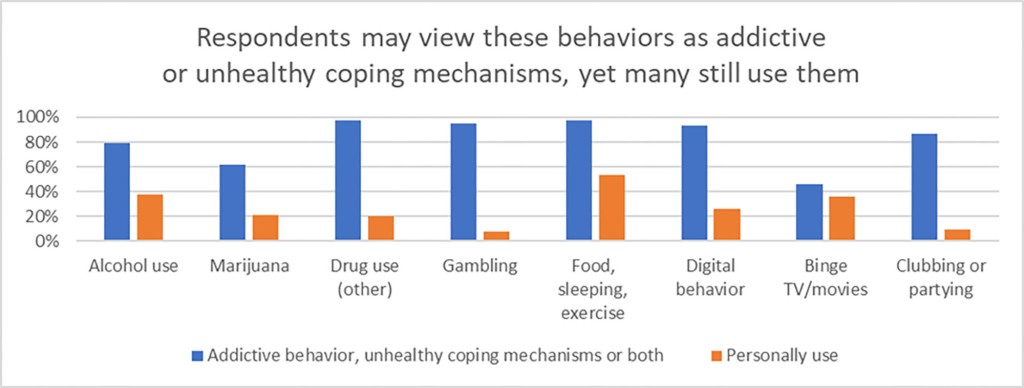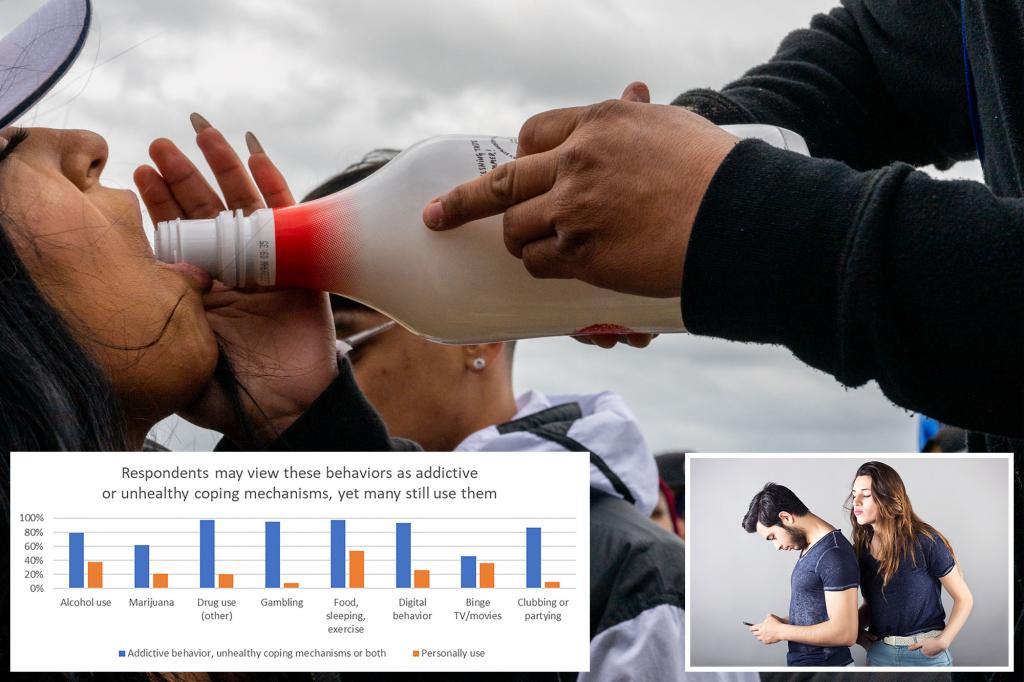An estimated 77% of Americans engage in addictive behaviors to cope with mental health issues, often despite efforts to find effective clinical therapies.
The GeneSight Mental Health Monitor study, conducted by Myriad Genetics in Salt Lake City, Utah, identified several potentially high-risk behaviors among those used to cope with anxiety and depression, including drinking alcohol, drug use, gambling, food consumption, binge eating. media, excessive sleep, excessive exercise and partying.
Notably, even those who have actively sought mental health care turn to the aforementioned habits to cope with failed medications or other ineffective treatments.
And nearly all of those surveyed – 94% – agree that these addictions could also be hiding underlying mental health issues.
“Many of my patients have struggled with depression and/or anxiety but have been unable to find a treatment that has made them feel better. So they have resorted to alcohol, drugs or destructive behaviors to calm down, as these offered short-term relief,” Dawn Johnson, a psychiatric mental health nurse practitioner at the Indiana Center for Recovery in South Bend, said in a press release.
“However, this behavior resulted in deteriorating mental health and the destruction of their lives.”
Two-thirds of survey participants with anxiety or depression went through a process of trial and error to find a medication that worked for them. Unfortunately, 45% of patients for whom medication did not work admitted to resorting to the aforementioned unhealthy behaviors to manage their disease.
For example, 77% of respondents with depression or anxiety agreed that solo drinking is an unhealthy and addictive coping behavior, despite the fact that 41% of them maintain this unhealthy habit, while only a quarter of those who drink heavily alone acknowledged that they might have a problem.
Other respondents diagnosed with depression and anxiety admitted to sleeping too much or too little (70%), withdrawing from social activities (64%), binge watching TV or movies (49%) and jumping work, school or household responsibilities (48%) to cope with psychological stress.

More than half of patients with depression or anxiety, 58%, who were told they had a problem, believe that appropriate mental health treatment helped alleviate any concerns about addiction.
At the Indiana Center for Recovery, Johnson uses genetic testing to determine how his patients might respond to various medications prescribed for mental health issues, such as the inability to properly metabolize drugs, lack of symptom relief or undesirable side effects.
“The GeneSight report reassures them that we’re not just throwing drugs at them, we’re actually customizing their plan based on their genetic makeup,” she explained.

“Mental health and addiction often go hand in hand,” said Morgan Freas, Senior Medical Science Liaison at Myriad Genetics. “Yet the stigma associated with admitting mental health issues is often greater than flight to substance abuse or addiction.”

